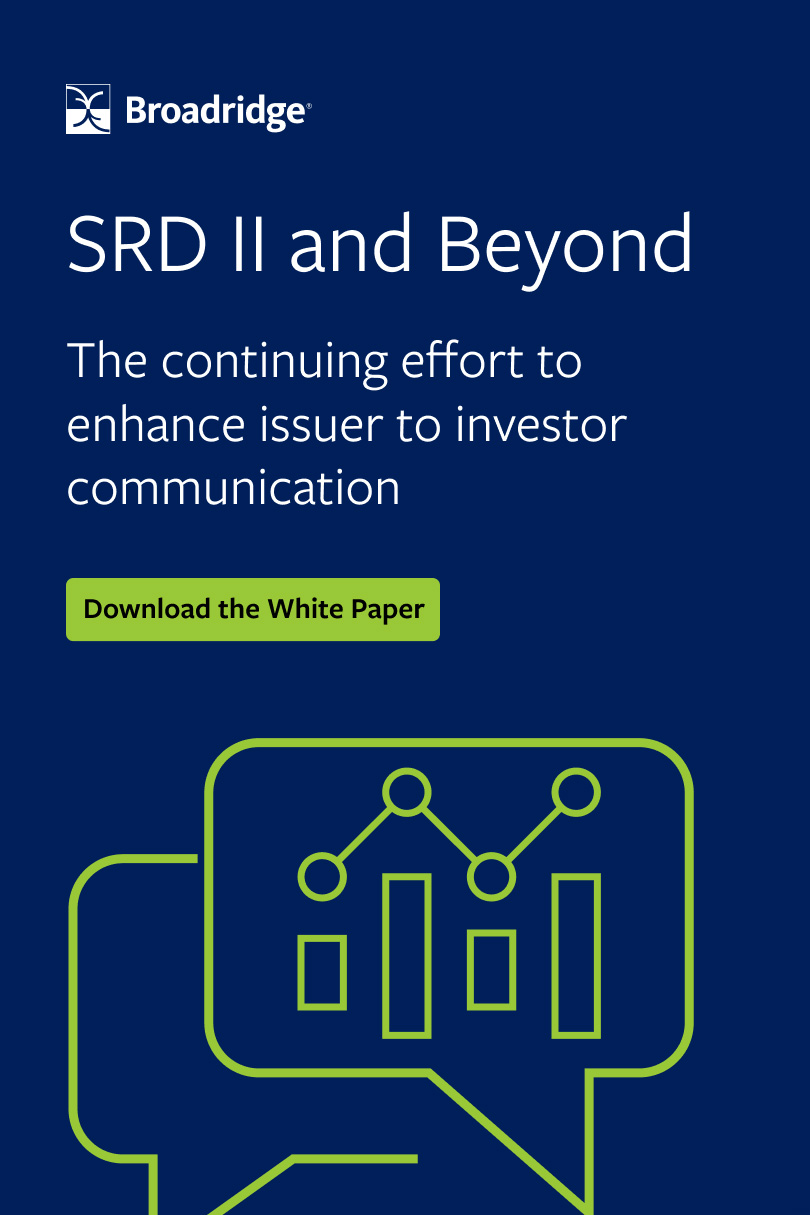Looking to the future, industry participants can expect to see a systemic approach in including sustainability in financial products, and despite the challenges, the ESG evolution is only going to grow from here
Particularly popular and important to the younger generation, sustainability is a trend that is becoming increasingly mainstream and it is showing no signs of slowing. In fact, it is only going to become more prominent.
It has become embedded in many people’s daily lives with an increasingly high demand for materials to be ‘green’ and sustainable. But what does this mean in finance?
A term that is often used is ‘environmental, social and governance’ (ESG): an umbrella term for investments that seek positive returns and long-term impact on society, environment and the performance of the business.
Experts also say sustainable finance includes a strong green finance component that aims to support economic growth while reducing pressures on the environment, addressing greenhouse gas emissions, tackling pollution, minimising waste and improving efficiency in the use of natural resources.
In light of the growing political and social focus on issues associated with climate change more broadly, investors are increasingly looking to align their investment strategies with these greener credentials, according to experts.
However is it time for the industry to become more comfortable about being uncomfortable in terms of an exact definition?
One question often asked relating to ESG is how the process works when it comes to interacting with different companies. Questions are being raised around how you test ESG, how you measure it, and how that is then integrated into global asset integration models.
Currently, there is no standardised framework on ESG, and it encompasses social issues as well as factors relating to climate-change-related issues. The lack of standardisation means that while one company may see investing in tobacco as unethical, for example, another company might not agree, making it a matter of opinion.
While the industry is keen for a more standardised framework, there is some way to go in this space. For example, an investor may see the green bond label but will still have no idea if it is following the guidelines as this ‘green label’ encompasses lots of different things.
Experts predict that regulation is going to help to make those labels more meaningful for investors, and investors would like to see regulation around disclosure.
Although there is nothing wrong with different shades of green, there has to be transparency. It gets murky when you define what is green and what is not green, whether it is more on the social side or more on the environment. One expert has warned that the industry is still young in the grander scheme of things, and innovation is only going to grow even further, so trying to codify that now in this early stage is going to be a huge mistake.
Integrating sustainability
Despite the confusion of different shades of green and the matter of opinion, the industry is working towards integrating sustainability considerations and encouraging the availability of ESG products to European investors.
“Although the optionality of having ESG has vanished over the past few years, it remains quite an individual and subjective matter for the moment,” says Claude-Joseph Pech, equity partner, head of business development and client relationship management at Pictet Asset Services.
Pech explains that some actors in the asset servicing industry have established ESG reporting tools to include scoring possibilities so clients can screen according to ESG-factors of their own needs and preferences.
“The importance and availability of such an offer for European investors can be further encouraged through education and transparency,” he adds.
Education is particularly important from both an asset manager perspective as well as an investor perspective. As such the European Commission has created an action plan which aims to regulate certain practices but Pech highlights “this is not an easy space to navigate and I think asset servicing providers can play a role in assisting both managers and investors in this regard”.
Data and reporting frameworks also come into play here and they have been a hurdle in the way of integrating sustainability considerations.
Industry participants have seen a surge in corporate activity in ESG in 2020 with many of the large market data and index providers acquiring or partnering with ESG rating providers to improve the quality of data.
During September this year, five global reporting framework institutions namely, the CDP, the Climate Disclosure Standards Board, the Global Reporting Initiative, the International Integrated Reporting Council and the Sustainability Accounting Standards Board, published a shared vision for a comprehensive, globally accepted, corporate reporting system that includes both financial accounting and sustainability disclosure.
Additionally, the EU ESG Disclosure and Taxonomy Regulations are due to come into force during 2021 making data and reporting much more consistent and transparent.
“All of these industry developments will make ESG products more transparent and easier to analyse and compare which will attract more investors,” says Karlien de Bruin, director, product development ESG at SANNE.
The European Fund and Asset Management Association has said the European Commission’s work on integrating sustainability considerations is an “essential milestone” that will further encourage the availability of ESG products to European investors.
This came in response to the EC’s consultations on delegated acts that seek to integrate sustainability risks and sustainability factors into UCITS, Alternative Investment Fund Managers Directive (AIFMD) and the Markets in Financial Instruments Directive (MiFID).
The new EU Disclosure Regulation will require AIFMs, UCITS and portfolio managers and investment advisers authorised under MiFID, to make certain disclosures with regards to sustainability risks and sustainability factors.
“These regulations require disclosures such as integration of sustainability risks into decision-making processes, due diligence policies, remuneration policies, a description of the environmental or social characteristics and objectives, how these objectives will be met, methodologies used to measure and monitor these objectives,” explains Bruin.
The disclosures need to be made before the investor enters the product as well as periodically once invested. Bruin notes that the new regulations make it “very hard to hide any non-compliance and is intended to weed out ‘greenwashing’”.
Challenges
In addition to the challenges around interpretation and how regulatory requirements will apply to each fund, and portfolio managers, investment advisers individually, some industry participants observe a trend in clients demanding high levels of “ESG quality”.
Regulators are facing the challenge of creating trustworthy ESG standards and with these new regulations emerging, the challenge could be to restore trust in investors and asset managers.
Another setback, which is often addressed, is the inflation that is happening in the space of ESG products.
“We are already seeing this to some extent, where these products are witnessing such a high level of demand, that the primary purpose behind it, which is impact and shaping sustainability, no longer is not the driver because of the speculative aspect,” says Pech.
He adds: “I think that one final challenge to consider is that a lot of emphasis is put on the ‘E’ of ESG. Indeed, green investment is revolutionising the fund industry, and the on-going climate crisis will keep this trend going. The social aspect of ESG is underrepresented for now, so there is room for improvement in that space, especially with the last year we’ve had.”
Increased appetite and more mainstream
Despite the challenges, the industry’s work towards a more sustainable future is paying off. ESG was once considered a niche but it is now more mainstream with increased appetite from investors.
Sova Capital’s head of international sales, Kirill Yankovskiy, observes sustainable investing is on the rise as more funds follow criteria integration, ESG theme indexes are formed, and passive money (ETFs) starts to get an allocation from larger, long term pension funds.
“UHNWI globally are demonstrating a growing interest in ESG topics, which increases the future likelihood that the trend will endure momentum that is bolstered by further industry development of rating agencies, experts, and infrastructure,” comments Yankovskiy.
Most importantly, there is a recognition that investing with a focus on ESG brings real, calculable financial benefits such as lower cost of borrowing for “green debt,” access to a wider investor base, and higher allocation for better ESG ranking, Yankovskiy affirms.
There is an increasingly strong demand from asset managers as well as end-clients to get more ESG dimensions added into their oversight and more monitoring from their investment managers, according to Pech.
Additionally, there is a strong interest in ESG related matters, which will only grow stronger with the new generation of clients, who grew up with an understanding of ESG concepts and concerns.
The future
Looking to the future, industry participants can expect to see a systemic approach in including sustainability in financial products, especially given the regulatory framework set up by the EC.
European policymakers are faced with the conundrum of whether to create a standardised tick-the-box system — putting sustainability in a niche — or to opt for a flexible approach promoting dynamic developments in sustainable investing.
Earlier this year, Tanguy van de Werve, EFAMA director general, indicated they would advise for the latter as a flexible approach will foster a sustainable European economy.
Pech predicts there will be a minimum threshold that will be standardised. “Typically, in a MiFID context, there will be no choice when it comes to reporting and we could see a standardised approach to determining ESG preferences in the investment objectives when considering both suitability and appropriateness for investment,” he says.
Weighing in on how the future will look in this space, Yankovskiy suggests that industry standards are still being developed, and the main rating analytical houses have indicated an ongoing interest in the topic.
“Further, the majority of large investment firms have built or are building internal analytical expertise for ESG ranking, which will make sustainable investing more common in the market. It’s worth noting that building this expertise can be a difficult and expensive practice for smaller investment firms. Still, as pension funds and super-national funds continue to implement ESG restrictions or requirements, sustainability will become the industry wide norm,” he concludes.



